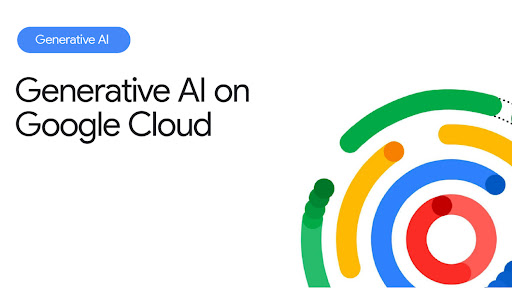Top 10 AI platforms to create modern applications
An AI platform, which is a collection of services, supports the machine learning life cycle. It’s also built to be more efficient and intelligent than typical frameworks. This covers assistance with data collection and preparation, as well as training, testing, and deploying machine learning models for large-scale applications.
Artificial Intelligence advancements have resulted in some of the most intelligent answers to issues that were before incomprehensible. By providing multiple benefits, an AI Platform enables enterprises to reach optimum productivity. Face detection, terrorism funding, network penetration, and other jobs benefit from AI platforms.
So, here’s a rundown of our favourite AI systems for enabling businesses with smart capabilities: Top 10 AI platforms
1. Amazon AI Services: Amazon provides a long list of Artificial Intelligence and cloud computing technologies that they can use to obtain greater insights into their customers as well as ease a variety of their daily duties. With AI services such as translation services, tailored recommendations, creating forecasts using Machine Learning, extracting data from physical copies of documents, and user identity verification, Amazon acquires enhanced insights and makes better decisions.

2. Microsoft Azure: Microsoft Azure is a cloud based machine learning analytics platform that makes business ML easier. Azure is a cost-effective, AI-powered technology that allows organisations to function on a global scale. With Azure ML, data scientists and developers can quickly design, train, and deploy machine learning models to the Azure Cloud using a variety of tools. It is one of the most effective platforms for developing and deploying intelligent machine learning models. Organizations and businesses can use Microsoft Azure to access a wide range of services, including cloud computing, IoT, migration possibilities, virtual desktops for remote access, developer tools, and increased security, among others.

3. Google Cloud AI Platform: Google also offers a set of AI-related cloud services. Data storage services and management tools are just a few of the AI platforms that Google offers to help organisations run more smoothly. Some of the Google cloud AI platforms include machine learning accelerators, deep learning, natural language processing, translations, and vision application programming interface video analysis. Other capabilities of Google’s AI systems include cloud-based machine learning, spam detection, and consumer sentiment analysis.

4. H2O: H2O is educating businesses about the many advantages of AI and ML by providing access to healthcare, finance, telecommunications, retail, marketing, and pharma services in order to reduce market risks and increase profitability. H2O’s best feature is its auto-ML capabilities. It enables both novices and specialists to create and train AI models. The platform can handle a variety of data types, including tabular, text, image, audio, video, and so on.
5. Salesforce Einstein: Salesforce Einstein is a cutting-edge AI tool that enables Salesforce to provide smarter insights to its clients while also automating their processes. Its goal is to provide more accurate customer information. There is no need to manage models or prepare data on this platform.
6. IBM Watson: By establishing project goals, data preparation, selecting the relevant tools, model training, and deployment, Watson Studio delivers solutions at all phases of deploying and handling machine learning models. IBM’s best characteristic is that it can learn a lot from small amounts of data. Businesses and organisations can use the IBM Watson platform to automate complicated machine learning processes, anticipate future outcomes, and make better use of their employees’ time. IBM data scientists and analysts have access to a world-class array of tools for managing flowing data, multiple projects, deep learning integration, visual recognition, natural language processing, and model lifecycle automation, among other things.
7. Tensor Flow: The most widely used artificial intelligence programme is Tensor Flow. It’s a Python-based numerical computation and machine learning framework that lets programmers create massive multi-layered neural networks. It is appropriate for all levels of experience, from beginners to specialists. You can easily design and deploy AI-based applications in the cloud, browser, on-premise, iOS, and Android devices using the platform. Desktops, clusters, mobile devices, edge devices, CPUs, GPUs, and TPUs are all supported by this platform. It may be used for image identification, video detection, time series analysis, voice recognition, and other activities. TensorFlow enables Developers, Researchers, and Data Scientists to tackle challenging Machine Learning challenges on several platforms. TensorFlow’s other capabilities include deep flexibility, true portability, and auto differentiation.
8. Wipro Holmes: Wipro platform designed to improve cognitive process automation, Natural Language Processing, self-learning, advanced analytics, and predictive systems efficiency, speed, and experience. Wipro Holmes is also useful in fields like development, networking, remote operations, virtual assistants, security, and cloud operations. Other characteristics include visual computing applications, robotics, drones, and digital virtual agents.
9. Infosys Nia: The Infosys Nia platform was created to make AI easier for corporations and enterprises. Nia’s best features are deeper insights for improved analytics and forecasting, automation capabilities, root cause investigation, faster transfer, and data management. It may be used for a variety of tasks involving machine learning, deep learning, data management, natural language processing, and so on. This allows businesses to be more productive, as well as employees to be more efficient in their work.
10. Rain Bird: Rain Bird could be the appropriate instrument for AI-assisted decision-making. It’s appropriate for firms that rely on financial agencies, fraud prevention services, and other similar services. Rain Bird also has a visual user interface, smart data import, and natural language processing.









